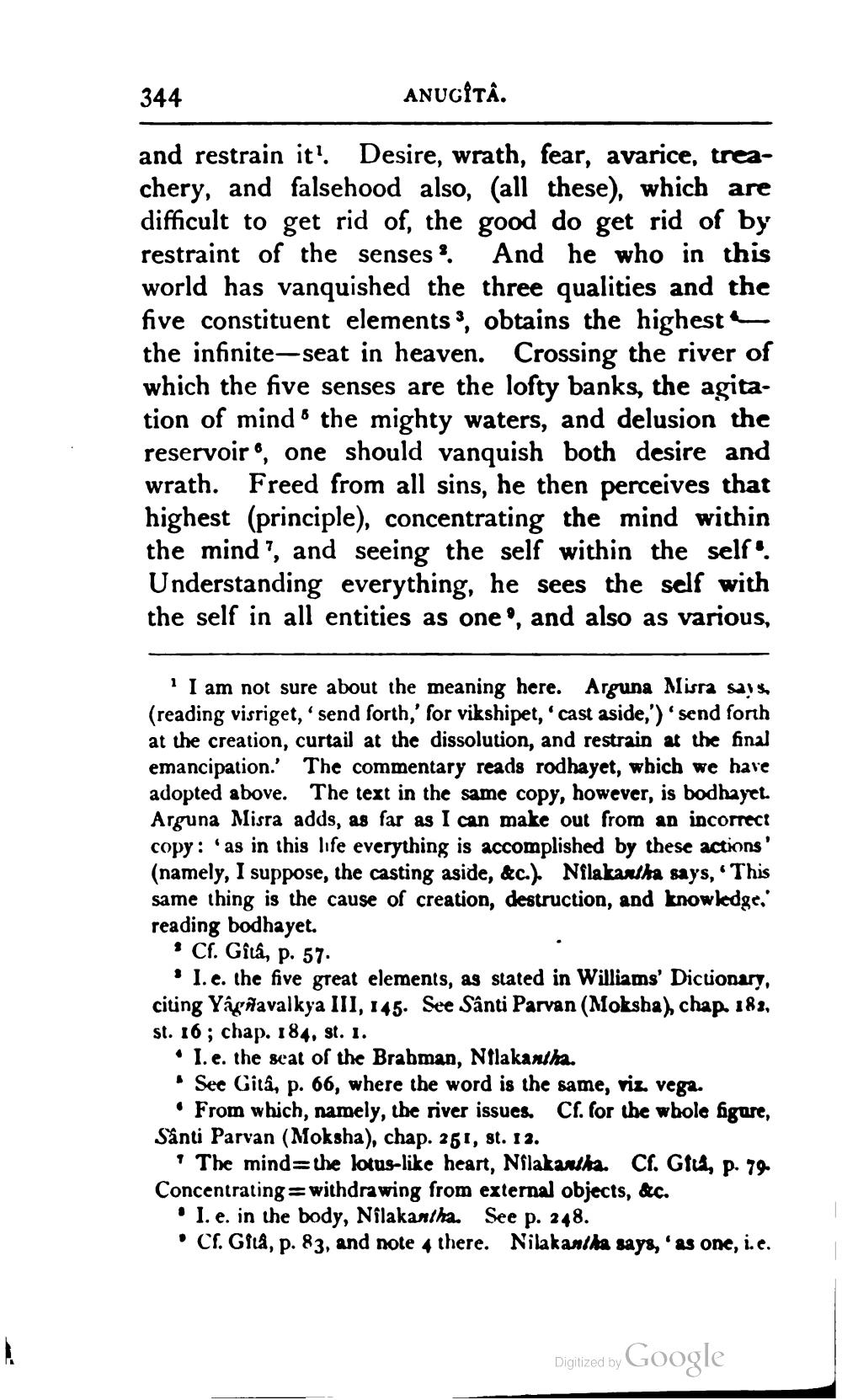________________
344
ANUGÍTâ.
and restrain it? Desire, wrath, fear, avarice, treachery, and falsehood also, (all these), which are difficult to get rid of, the good do get rid of by restraint of the senses. And he who in this world has vanquished the three qualities and the five constituent elements, obtains the highest the infinite-seat in heaven. Crossing the river of which the five senses are the lofty banks, the agitation of mind the mighty waters, and delusion the reservoir, one should vanquish both desire and wrath. Freed from all sins, he then perceives that highest (principle), concentrating the mind within the mind!, and seeing the self within the self.. Understanding everything, he sees the self with the self in all entities as one o, and also as various,
"I am not sure about the meaning here. Arguna Misra says (reading visriget, send forth,' for vikshipet, 'cast aside,')'send forth at the creation, curtail at the dissolution, and restrain at the final emancipation. The commentary reads rodhayet, which we have adopted above. The text in the same copy, however, is bodhayet. Arguna Misra adds, as far as I can make out from an incorrect copy: 'as in this life everything is accomplished by these actions' (namely, I suppose, the casting aside, &c.) Nilakantha says, 'This same thing is the cause of creation, destruction, and knowledge.' reading bodhayet.
• Cf. Gitá, p. 57.
• I.e. the five great elements, as stated in Williams' Dictionary, citing Yâgħavalkya III, 145. See Sânti Parvan (Moksha, chap. 183, st. 16; chap. 184, st. 1.
• I.e. the seat of the Brabman, Nilakantha. • See Gita, p. 66, where the word is the same, viz. vega.
• From which, namely, the river issues. Cf. for the whole figure, Sånui Parvan (Moksha), chap. 261, st. 12.
"The mind=the lotus-like heart, Nilakantha. Cf. Gitá, p. 79 Concentrating=withdrawing from external objects, &c.
• I. e. in the body, Nilakantha. See p. 248. • Cf. Gilå, p. 83, and note 4 there. Nilakantha says, 'as one, i.e.
Digitized by Google




